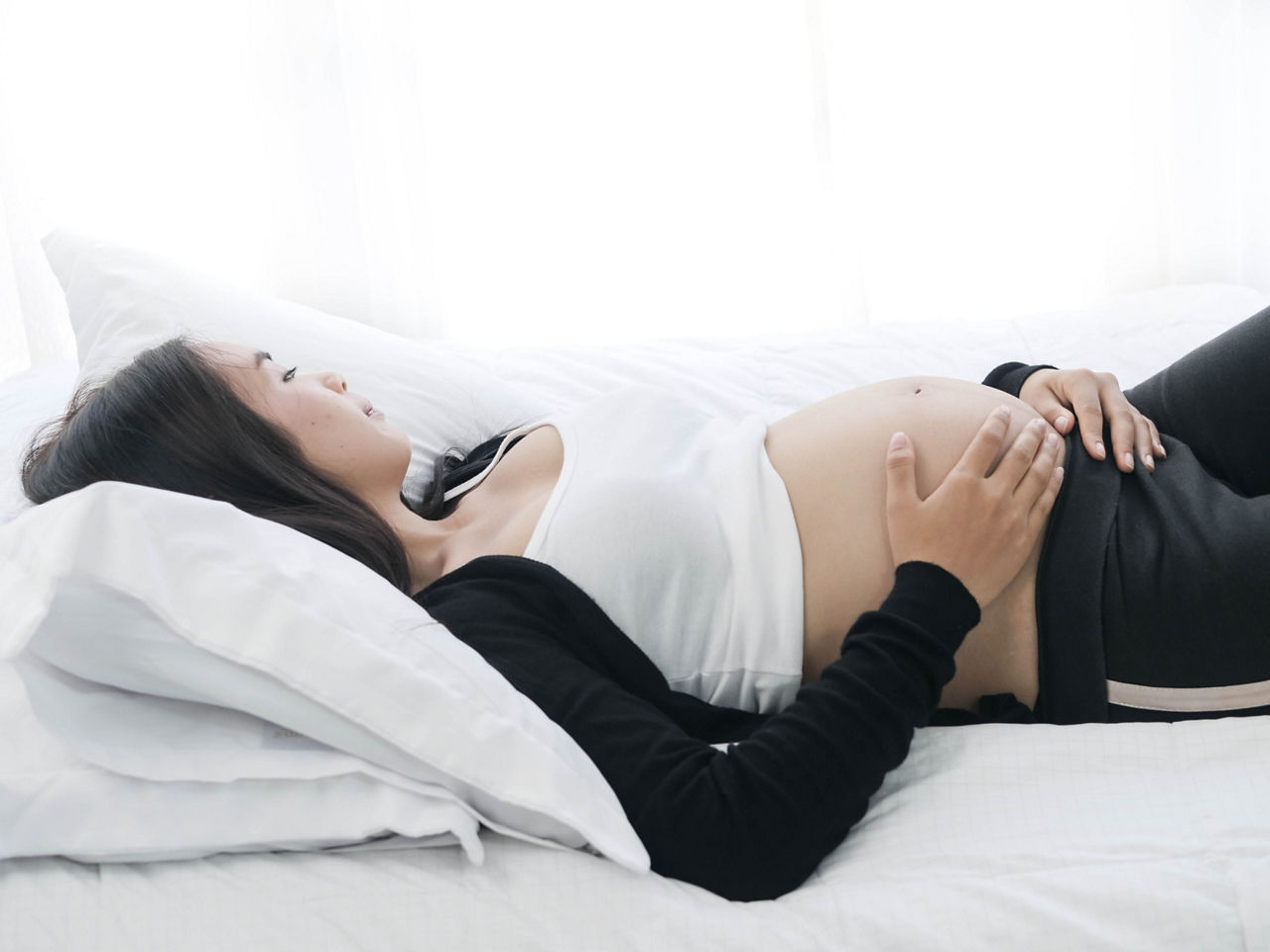Breastmilk is the best for babies. The World Health Organisation recommends exclusive breastfeeding for the first six months of life. Unnecessary introduction of bottle feeding or other food and drinks will have a negative impact on breastfeeding. After six months of age, infants should receive age-appropriate foods while breastfeeding continues for up to two years of age or beyond. Consult your doctor before deciding to use infant formula or if you have difficulty breastfeeding.
- Week 1
- Week 2
- Week 3
- Week 4
- Week 5
- Week 6
- Week 7
- Week 8
- Week 9
- Week 10
- Week 11
- Week 12
- Week 13
- Week 14
- Week 15
- Week 16
- Week 17
- Week 18
- Week 19
- Week 20
- Week 21
- Week 22
- Week 23
- Week 24
- Week 25
- Week 26
- Week 27
- Week 28
- Week 29
- Week 30
- Week 31
- Week 32
- Week 33
- Week 34
- Week 35
- Week 36
- Week 37
- Week 38
- Week 39
- Week 40
Week 33 of Your Pregnancy
Was that a contraction? Why is my lower abdomen squeezing? What on earth is baby doing in my womb? At week 33 of pregnancy, you may notice some unusual tightening around your belly and sides. If you’re feeling a loss in appetite, read on for healthy meal ideas.
Huat ah! Your baby is the size of a pineapple this week. Weighing 2kg and measuring 30cm1, your baby’s brain and nervous system are now fully developed. It will continue to grow rapidly in the coming weeks and build fat stores that will keep it warm after birth1.
With less room to move, you’re likely to feel every roll, kick, stretch and shift! You might find that certain foods or drinks affect your baby’s movements too – talk to your doctor if this causes you any concern1.
At week 33, your abdomen may feel tight from time to time. Don’t rush to the delivery suite just yet, because this is a sign that your uterus is preparing for the contractions of labour. These unusual sensations are known as Braxton Hicks contractions. As you count down to your big day, you may notice more and more of these tightening sensations2 – these are perfectly normal and nothing to worry about!
Quality, Not Quantity in Your Pregnancy Diet
Late in your third trimester, your baby would have taken up most of the space your stomach used to occupy. Because of this, you may experience a shrinking appetite. You pick at your food, or prefer to eat smaller portions.
Whenever you feel tired of being pregnant, look forward to meeting your adorable child in just a few weeks! If you don’t feel like eating large portions, try to graze on healthy snacks throughout the day – this will ensure you and your baby both receive a steady supply of nutrients and energy.
The key nutrients you’ll need at this stage are:
- Vitamin D to support your baby’s developing bones
- Iron to help your baby’s cognitive function and to reduce tiredness and fatigue
- The long-chain polyunsaturated fatty acid (LCP) known as DHA, to support your baby’s brain and eye development
A good supply of these nutrients during pregnancy lays the foundation for a lifetime of good health!
What Should I Do?
Have a healthy snack on hand for a nutritious boost during the day!
For Vitamin D:
- Sardines on toast
- A bowl of fortified, unsweetened breakfast cereal with milk
For Iron:
- Hummus and bread
- Legumes and baked potato
- A ham or roast beef sandwich
- A handful of dried apricots, figs or prunes
For DHA and other omega-3 fats:
- Grilled sardines with salad
- Smoked salmon sandwich
- A handful of nuts and seeds
- Soya milk fruit smoothie
- A bowl of wholegrain cereal and milk
Sources:
¹ Deans A. Your New Pregnancy Bible, The experts’ guide to pregnancy and early parenthood. 4th ed. London: Carroll & Brown Publishers Limited, 2015. p. 47.
² NHS UK. You and your baby at 33-36 weeks pregnant [Online]. 2015.
Available at: www.nhs.uk/Conditions/pregnancy-and-baby/pages/pregnancy-weeks-33-34-35-36.aspx [Accessed August 2016].

Connect with our team of experts
We provide advice and support for you on your parenthood journey



